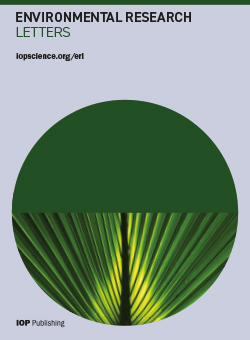Advancing ambient water quality monitoring and management through citizen science in low- and middle-income countries
IF 5.6
2区 环境科学与生态学
Q1 ENVIRONMENTAL SCIENCES
引用次数: 0
Abstract
In contexts where conventional environmental monitoring has historically been limited, citizen science (CS) for monitoring efforts can be an effective approach for decentralized data generation that also raises scientific literacy and environmental awareness. To that end, the United Nations Environmental Program is considering CS as a mechanism for producing ambient water quality data to track progress on sustainable development goal (SDG) indicator 6.3.2: ‘proportion of bodies of water with good ambient water quality’. However, the alignment of SDG 6.3.2 monitoring requirements with CS capacity and results in low- or middle-income countries has not been assessed. Through a systematic literature review of 49 journal publications, complemented by 15 key informant interviews, this article examines the methods and outputs of CS programs in resource-constrained settings. We explore the potential of these programs to contribute to tracking SDG 6.3.2. Using the CS impact assessment framework, we evaluate broader outcomes of CS programs across 5 domains: society, economy, environment, governance, and science and technology. Despite large variability in scope, CS programs were consistently found to generate useful data for national-level reporting on physicochemical and ecological parameters; however, data quality is a concern for CS measurement of microbiological parameters. The focus in literature to-date is predominantly on scientific data production which falls only within the ‘science and technology’ outcome domain. Societal, governance, economic, and environmental outcomes are infrequently evaluated. Of the studies reviewed in this article, 75% identified some form of pollution but only 22% of them reported follow-up actions such as reporting to authorities. While CS has important potential, work is still needed towards the ‘formalization’ of CS, particularly if intended for more vulnerable contexts.通过公民科学推动中低收入国家的环境水质监测和管理
在传统环境监测历来有限的情况下,公民科学(CS)监测工作可以成为一种有效的分散式数据生成方法,同时还能提高科学素养和环境意识。为此,联合国环境计划署正在考虑将 CS 作为生成环境水质数据的机制,以跟踪可持续发展目标(SDG)指标 6.3.2 "环境水质良好的水体比例 "的进展情况。然而,在低收入或中等收入国家,SDG 6.3.2 监测要求与 CS 能力和结果的一致性尚未得到评估。本文通过对 49 篇期刊论文的系统性文献综述,辅以 15 次关键信息提供者访谈,研究了在资源有限的环境中开展 CS 项目的方法和成果。我们探讨了这些项目在跟踪可持续发展目标 6.3.2 方面的潜力。我们利用 CS 影响评估框架,评估了 CS 项目在社会、经济、环境、治理和科技等 5 个领域的广泛成果。尽管在范围上存在很大差异,但我们始终认为 CS 项目能够为国家层面的理化和生态参数报告生成有用的数据;然而,数据质量是 CS 微生物参数测量的一个问题。迄今为止的文献主要关注科学数据的生成,这只属于 "科学与技术 "成果领域。社会、管理、经济和环境成果很少得到评估。在本文回顾的研究中,75% 的研究发现了某种形式的污染,但只有 22% 的研究报告了后续行动,如向当局报告。虽然 CS 具有重要的潜力,但仍需努力使 CS "正规化",尤其是针对更脆弱的环境。
本文章由计算机程序翻译,如有差异,请以英文原文为准。
求助全文
约1分钟内获得全文
求助全文
来源期刊

Environmental Research Letters
环境科学-环境科学
CiteScore
11.90
自引率
4.50%
发文量
763
审稿时长
4.3 months
期刊介绍:
Environmental Research Letters (ERL) is a high-impact, open-access journal intended to be the meeting place of the research and policy communities concerned with environmental change and management.
The journal''s coverage reflects the increasingly interdisciplinary nature of environmental science, recognizing the wide-ranging contributions to the development of methods, tools and evaluation strategies relevant to the field. Submissions from across all components of the Earth system, i.e. land, atmosphere, cryosphere, biosphere and hydrosphere, and exchanges between these components are welcome.
 求助内容:
求助内容: 应助结果提醒方式:
应助结果提醒方式:


